THANK YOU
TO ALL OF OUR SUPPORTERS, VOLUNTEERS, + ATTENDEES, SEE YOU IN MEDELLÍN IN 2022!Congratulations to the organizers of WCSJ2019 and WCSJ2023!
Student Coverage
-
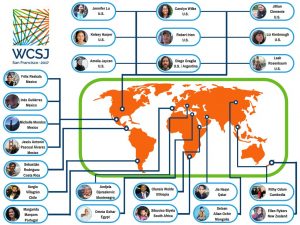
Student Journalists Produce 52 Reports from WCSJ2017
Rob IrionStudent science writers from around the world have created a set of 52 stories from the World Conference of Science Journalists 2017, spanning most of the meeting’s sessions and creating a valuable reference archive for journalists in the U.S. and abroad. The reports, along with bios of the authors, are online at the WCSJ2017 Student... Read More -
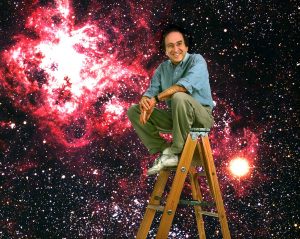
Will Cosmologists Save the World? Approaches from Scientific Training Could Shape Public Debates
Amelia JaycenBy Amelia Jaycen SAN FRANCISCO—Saul Perlmutter, a Nobel Prize–winning astrophysicist and cosmologist at Lawrence Berkeley National Laboratory, has spent a lot of his time ascertaining how quickly the universe is expanding. But he is also concerned with some down-to-earth issues, like the state of human interactions. As he watched public discussions unfold in the last... Read More -
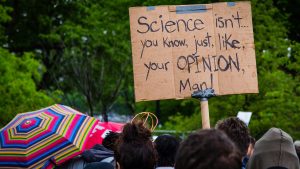
Fact-Checking In the Age of “Fake News”: A Q&A With Brooke Borel and Alex Kasprak
Carolyn WilkeBy Carolyn M. Wilke SAN FRANCISCO—Is fact-checking the future of journalism? That question, at once disturbing for our society and promising for the increased role science journalists might play in combating fake news, drove a panel discussion among four experts on 30 October at the World Conference of Science Journalists 2017. The panelists, all experienced... Read More -
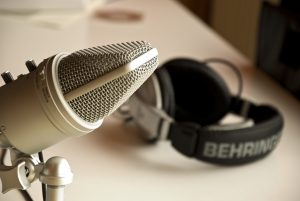
Science Podcasts: The Fun, the Challenges, and Tips from the Pros
Ellen RykersSAN FRANCISCO—Science podcasts are more popular than ever. Producing them takes time, technical savvy, and a deep passion to engage listeners with material that is both informative and fun. How does one start a science podcast and build a dedicated audience? Those topics drew an enthusiastic crowd on 27 October at the World Conference of... Read More -
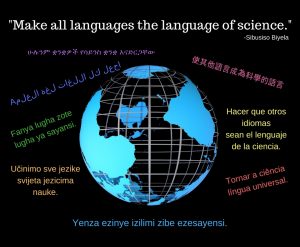
How “Decolonizing” Science Can Make It Better
Liz KimbroughBy Liz Kimbrough SAN FRANCISCO—When South African student journalist Sibusiso Biyela sat down to write about the launch of the MeerKAT telescope in both English and Zulu, he thought it would be simple. The English version rolled out smoothly. But when he began to translate into Zulu, his native language, he found he would have... Read More -
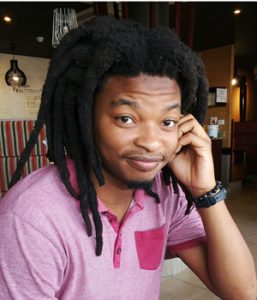
How to Decolonize (or Decolonise) Science Communication
Diego GragliaSibusiso Biyela, one of this year’s student travel fellows, brought a South African perspective to a panel on the decolonization of science 27 October at the World Conference of Science Journalists. ‘We were taught that science has a western origin’ @AstroSibs at #WCSJ2017 #DecolonizeScience pic.twitter.com/NnVPCuO8kL — Oscar Miyamoto (@MiyamOtOscar) October 27, 2017 The panel also... Read More -
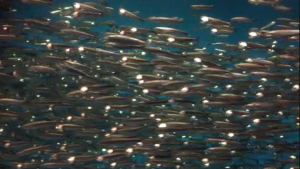
The Global Ocean: Can We Overcome Our Failures and Move Toward Healthy Seas?
Michelle MorelosBy Michelle Morelos SAN FRANCISCO—Just like us, marine species need safe places to call home. But the world’s oceans are no longer as safe. Climate change, ocean acidification and overfishing are the major problems faced by life in the sea. Are there actions humans can now take to turn the tide and lift the gloom?... Read More -
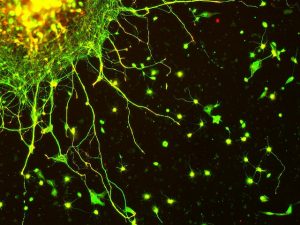
Looking for Life: Connecting Neurons in the Brain with Consciousness
Jillian ClementeBy Jillian Clemente SAN FRANCISCO—Loving with all of your heart is overrated. Because the brain is the organ of conscience, it’s the decision-maker when it comes to love, not the heart, said neuroscientist Christof Koch on 27 October at the World Conference of Science Journalists 2017. “For Valentine’s Day, you give your girlfriend heart-shaped chocolate,”... Read More -
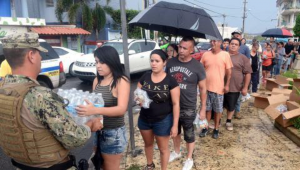
Losing Our Cool: Climate Change Spurs Global Increases in Violence and Inequality
UCSC SciComBy Annie Roth SAN FRANCISCO—We all know climate change increases the severity of tropical storms, but what about Twitter storms? According to Solomon Hsiang, director of the Global Policy Laboratory at the University of California, Berkeley, climate change is destabilizing both economies and emotions across the globe. During an eye-opening lecture titled “Economic Inequality, Violence,... Read More -
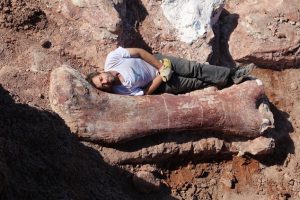
Airplane-Sized Dinosaurs and Other Prehistoric Oddities
Ellen RykersBy Ellen Rykers SAN FRANCISCO—The tip of bone sticking out of the dusty Patagonian earth was a tantalising hint: dinosaur fossil. Paleontologist Diego Pol and his team began to dig—unaware that they were about to unearth the largest dinosaur bone ever found. This giant bone was just one of a series of sensational South American... Read More -
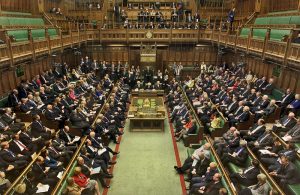
With Science Under Attack, Should Journalists Enter the Fray? A “House of Commons” Debate
Kelsey HarperBy Kelsey Harper SAN FRANCISCO—“There’s no sitting on the sidelines today,” announces German science journalist Kai Kupferschmidt as conference attendees shuffle into the room with matching looks of vague confusion. He herds them to the front of the room, where two groups of chairs face each other. The seats are separated by an aisle 3.96... Read More
